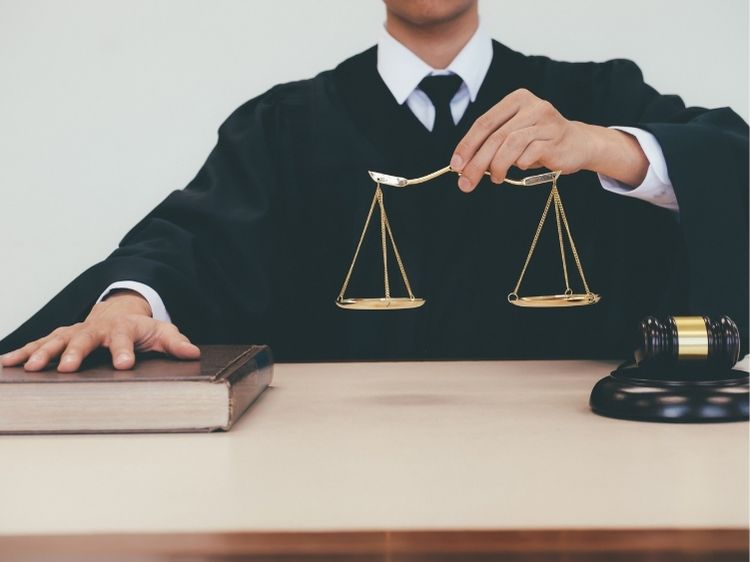Why You Might Need a Lead Poisoning Attorney
Lead poisoning is a serious issue that can turn lives upside down. From developmental issues in children to chronic health problems in adults, exposure to lead can leave lasting scars. If you or a loved one has suffered due to lead exposure, hiring a lead poisoning attorney could be your best step toward justice. These legal experts specialize in navigating complex cases, holding negligent parties accountable, and securing compensation for victims.
But what exactly does a lead poisoning attorney do, and how can they help you? Let’s dive into the nitty-gritty of their role and how to take action.
What Is Lead Poisoning, and Why Is It a Legal Concern?
Lead poisoning occurs when lead accumulates in the body, often over months or years. It’s particularly common in older homes with lead-based paint, contaminated soil, or tainted water systems. While laws have significantly reduced lead use, many properties and products still pose risks.
Common Sources of Lead Exposure
- Old Paint: Homes built before 1978 often contain lead-based paint.
- Contaminated Water: Lead pipes and solder can leach toxins into drinking water.
- Soil: Industrial pollution can leave lead in the soil, especially near factories or highways.
- Imported Goods: Toys, jewelry, and even cosmetics from some countries may contain lead.
The legal aspect comes into play when exposure results from negligence. For instance, landlords failing to disclose lead hazards or companies selling unsafe products can be held accountable.
The Role of a Lead Poisoning Attorney
So, what exactly does a lead poisoning attorney do? These legal professionals specialize in personal injury and environmental law, making them experts in tackling lead poisoning cases. Here’s how they can assist:
1. Assessing Your Case
An attorney evaluates the circumstances of your exposure to determine liability. Was it a negligent landlord? A manufacturer? Or perhaps a government entity? Pinpointing responsibility is the first step.
2. Gathering Evidence
Strong cases require solid evidence. Attorneys work with medical experts, environmental investigators, and other professionals to build a compelling argument.
3. Filing Legal Claims
Once the case is clear, your lawyer will file claims against the responsible parties. This might involve lawsuits for damages, medical bills, lost wages, or even punitive damages.
4. Negotiating Settlements
In many cases, attorneys negotiate settlements out of court, ensuring you get compensated without prolonged legal battles.
5. Representing You in Court
If a fair settlement isn’t possible, your attorney will represent you in court, fighting to secure the justice you deserve.
How to Choose the Right Lead Poisoning Attorney
Not all attorneys are created equal. Finding the right one can feel like finding a needle in a haystack. But don’t fret—here are some tips to guide you:
1. Experience Matters
Look for attorneys with a proven track record in lead poisoning cases. Their expertise in environmental law and personal injury litigation will be invaluable.
2. Client Reviews
Word-of-mouth and online reviews can provide insight into an attorney’s success rate and client satisfaction.
3. Initial Consultation
Most lead poisoning attorneys offer free consultations. Use this opportunity to discuss your case and gauge their approach.
What Compensation Can You Seek?
One of the biggest questions on anyone’s mind is, “What can I get out of this lawsuit?” Compensation often depends on the severity of the case, but here’s what victims can typically claim:
- Medical Expenses: Coverage for treatment, therapy, and ongoing care.
- Lost Wages: If lead poisoning affected your ability to work, you can claim lost income.
- Pain and Suffering: Non-economic damages for emotional distress and reduced quality of life.
- Property Damage: Costs to address lead contamination in your home.
Preventing Lead Poisoning: What You Can Do
Prevention is always better than cure. While legal recourse is crucial after exposure, proactive measures can protect your family:
- Test Your Home: If you live in an older property, hire professionals to check for lead-based paint or pipes.
- Filter Your Water: Use certified water filters that remove lead.
- Clean Regularly: Wet cleaning methods can reduce lead dust in your home.
- Educate Yourself: Stay informed about recalls and safety advisories.
FAQs About Lead Poisoning Attorneys
1. When should I contact a lead poisoning attorney?
As soon as you suspect lead exposure has harmed you or a loved one, it’s time to consult an attorney. Early action ensures evidence is preserved.
2. Can I afford a lead poisoning attorney?
Most attorneys work on a contingency fee basis, meaning they only get paid if you win your case. This makes legal help accessible to most victims.
3. How long does it take to resolve a lead poisoning case?
It varies. While some cases settle in months, others may take years, especially if they go to trial.
4. What if the responsible party denies liability?
Your attorney will use evidence and expert testimonies to build a strong case. Even if denial occurs, the legal process will help uncover the truth.
Conclusion: Take Action Today
Lead poisoning can devastate lives, but you don’t have to face the aftermath alone. A lead poisoning attorney can guide you through the legal process, fight for your rights, and help secure the compensation you deserve. Whether it’s holding a negligent landlord accountable or challenging a corporation, justice is within reach.
Remember, time is of the essence in these cases. Don’t wait—consult an attorney and take the first step toward reclaiming your life.
Authoritative Links for Reference
- U.S. Environmental Protection Agency (EPA) Lead Information: www.epa.gov/lead
- Centers for Disease Control and Prevention (CDC) Lead Poisoning Prevention: www.cdc.gov/nceh/lead
- National Center for Healthy Housing (NCHH) Lead Safety: www.nchh.org
